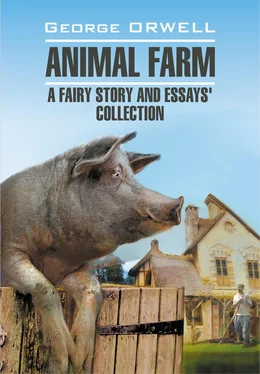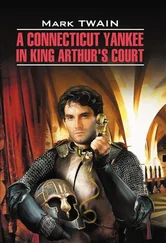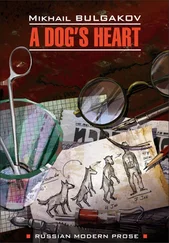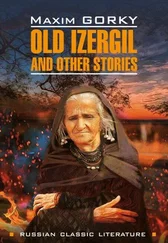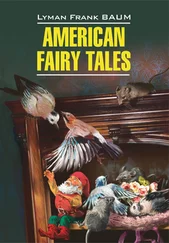But everyone worked according to his capacity. The hens and ducks, for instance, saved five bushels of corn at the harvest by gathering up the stray grains. Nobody stole, nobody grumbled over his rations, the quarrelling and biting and jealousy which had been normal features of life in the old days had almost disappeared. Nobody shirked – or almost nobody. Mollie, it was true, was not good at getting up in the mornings, and had a way of leaving work early on the ground that there was a stone in her hoof. And the behaviour of the cat was somewhat peculiar. It was soon noticed that when there was work to be done the cat could never be found. She would vanish for hours on end, and then reappear at meal-times, or in the evening after work was over, as though nothing had happened. But she always made such excellent excuses, and purred so affectionately, that it was impossible not to believe in her good intentions. Old Benjamin, the donkey, seemed quite unchanged since the Rebellion. He did his work in the same slow obstinate way as he had done it in Jones’s time, never shirking and never volunteering for extra work either. About the Rebellion and its results he would express no opinion. When asked whether he was not happier now that Jones was gone, he would say only ‘Donkeys live a long time. None of you has ever seen a dead donkey,’ and the others had to be content with this cryptic answer.
On Sundays there was no work. Breakfast was an hour later than usual, and after breakfast there was a ceremony which was observed every week without fail. First came the hoisting of the flag. Snowball had found in the harness-room an old green tablecloth of Mrs Jones’s and had painted on it a hoof and a horn in white. This was run up the flagstaff in the farmhouse garden every Sunday morning. The flag was green, Snowball explained, to represent the green fields of England, while the hoof and horn signified the future Republic of the Animals which would arise when the human race had been finally overthrown. After the hoisting of the flag all the animals trooped into the big barn for a general assembly which was known as the Meeting. Here the work of the coming week was planned out and resolutions were put forward and debated. It was always the pigs who put forward the resolutions. The other animals understood how to vote, but could never think of any resolutions of their own. Snowball and Napoleon were by far the most active in the debates. But it was noticed that these two were never in agreement: whatever suggestion either of them made, the other could be counted on to oppose it. Even when it was resolved – a thing no one could object to in itself – to set aside the small paddock behind the orchard as a home of rest for animals who were past work, there was a stormy debate over the correct retiring age for each class of animal. The Meeting always ended with the singing of ‘Beasts of England’, and the afternoon was given up to recreation.
The pigs had set aside the harness-room as a headquarters for themselves. Here, in the evenings, they studied blacksmithing, carpentering and other necessary arts from books which they had brought out of the farmhouse. Snowball also busied himself with organising the other animals into what he called Animal Committees. He was indefatigable at this. He formed the Egg Production Committee for the hens, the Clean Tails League for the cows, the Wild Comrades’ Re-education Committee (the object of this was to tame the rats and rabbits), the Whiter Wool Movement for the sheep, and various others, besides instituting classes in reading and writing. On the whole these projects were a failure. The attempt to tame the wild creatures, for instance, broke down almost immediately. They continued to behave very much as before, and when treated with generosity simply took advantage of it. The cat joined the Re-education Committee and was very active in it for some days. She was seen one day sitting on a roof and talking to some sparrows who were just out of her reach. She was telling them that all animals were now comrades and that any sparrow who chose could come and perch on her paw; but the sparrows kept their distance.
The reading and writing classes, however, were a great success. By the autumn almost every animal on the farm was literate in some degree.
As for the pigs, they could already read and write perfectly. The dogs learned to read fairly well, but were not interested in reading anything except the Seven Commandments. Muriel, the goat, could read somewhat better than the dogs, and sometimes used to read to the others in the evenings from scraps of newspaper which she found on the rubbish heap. Benjamin could read as well as any pig, but never exercised his faculty. So far as he knew, he said, there was nothing worth reading. Clover learnt the whole alphabet, but could not put words together. Boxer could not get beyond the letter D. He would trace out A, B, C, D in the dust with his great hoof, and then would stand staring at the letters with his ears back, sometimes shaking his forelock, trying with all his might to remember what came next and never succeeding. On several occasions, indeed, he did learn E, F, G, H, but by the time he knew them it was always discovered that he had forgotten A, B, C and D. Finally he decided to be content with the first four letters, and used to write them out once or twice every day to refresh his memory. Mollie refused to learn any but the five letters which spelt her own name. She would form these very neatly out of pieces of twig, and would then decorate them with a flower or two and walk round them admiring them.
None of the other animals on the farm could get further than the letter A. It was also found that the stupider animals such as the sheep, hens and ducks, were unable to learn the Seven Commandments by heart. After much thought Snowball declared that the Seven Commandments could in effect be reduced to a single maxim, namely: ‘Four legs good, two legs bad.’ This, he said, contained the essential principle of Animalism. Whoever had thoroughly grasped it would be safe from human influences. The birds at first objected, since it seemed to them that they also had two legs, but Snowball proved to them that this was not so.
‘A bird’s wing, comrades,’ he said, ‘is an organ of propulsion and not of manipulation. It should therefore be regarded as a leg. The distinguishing mark of Man is the hand , the instrument with which he does all his mischief.’
The birds did not understand Snowball’s long words, but they accepted his explanation, and all the humbler animals set to work to learn the new maxim by heart. FOUR LEGS GOOD, TWO LEGS BAD, was inscribed on the end wall of the barn, above the Seven Commandments and in bigger letters. When they had once got it by heart the sheep developed a great liking for this maxim, and often as they lay in the field they would all start bleating ‘Four legs good, two legs bad! Four legs good, two legs bad!’ and keep it up for hours on end, never growing tired of it.
Napoleon took no interest in Snowball’s committees. He said that the education of the young was more important than anything that could be done for those who were already grown up. It happened that Jessie and Bluebell had both whelped soon after the hay harvest, giving birth between them to nine sturdy puppies. As soon as they were weaned Napoleon took them away from their mothers, saying that he would make himself responsible for their education. He took them up into a loft which could only be reached by a ladder from the harness-room, and there kept them in such seclusion that the rest of the farm soon forgot their existence.
The mystery of where the milk went to was soon cleared up. It was mixed every day into the pigs’ mash. The early apples were now ripening, and the grass of the orchard was littered with windfalls. The animals had assumed as a matter of course that these would be shared out equally; one day, however, the order went forth that all the windfalls were to be collected and brought to the harness-room for the use of the pigs. At this some of the other animals murmured, but it was no use. All the pigs were in full agreement on this point, even Snowball and Napoleon. Squealer was sent to make the necessary explanations to the others.
Читать дальше
Конец ознакомительного отрывка
Купить книгу
